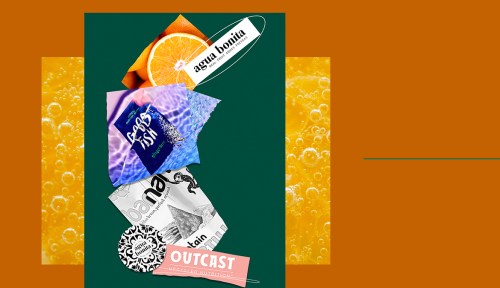The pandemic taught Americans to get scrappy in the kitchen. Looking to save money (and trips to the grocery store), they found creative ways to use more of the ingredients they had purchased. You could say they took their overripe bananas and made banana bread. And in 2021, you’ll see brands join this upcycled food movement with a slate of new products that repurpose bits of food that would otherwise go to waste into new items.
Experts in This Article
Erin Pontell is the founder and CMO of Agua Bonita, a brand of aguas frescas made from “ugly” produce.
founder of Goodfish, Harmless Harvest, and Bravo Sierra
Kelly Landrieu is the global coordinator of local brands at Whole Foods. She works closely with the company’s regional foragers and buyers to ensure strong, win-win partnerships with local producers across all product categories.
Upcycled foods are also reflective of another quality valued by shoppers: sustainability. “Consumers are growing increasingly aware of sustainability and their own purchasing power. They’re looking for new ways to engage in sustainable practices, and are willing to try new things to do so,” says Kelly Landrieu, global coordinator of local brands at Whole Foods Market, which also predicts upcycled foods will gain prevalence in 2021. It’s on Kroger’s radar, too. In September 2017, the brand launched a Zero Waste Foundation, which funds companies committed to ending food waste, and in the spring of 2020, they awarded funding to upcycled food brand Ripe Revival for the second year in a row.
A few brands you’ll spot on store shelves: Barnana, which turns bananas deemed too “imperfect” for the produce section into snack foods (100 million upcycled bananas and counting), was an early innovator in the space, launching in 2012 and reporting steady growth since then. Outcast released its line of protein powders made from surplus fruits and vegetables in 2018, and this year moved into a production space 15 times the size of its previous one in order to keep up with demand. The rapid success of two new brands that launched during the pandemic, Agua Bonita (aguas frescas made from “ugly” produce) and Goodfish (salmon chips made from used salmon skin), are further proof that consumers are using their dollars to show support for sustainable initiatives. “We’ve already gone from prototype to nearly selling out our first production run,” says Agua Bonita co-founder and CMO Erin PonTell, who says that the direct-to-consumer brand will also be available on store shelves in 2021.
Goodfish founder Justin Guilbert says he’s excited not only about the growth he’s seen for his business, but more so the good it’s doing for the planet: “Since launching in March, we’ve purchased and given purpose to over 164,000 pounds of salmon skins that would have gone to waste, increasing the value of each fish, and helping to support 15,000 jobs,” he says.
Considering that the United Nations estimates that $400 billion of food is wasted before it even gets delivered to stores, this is one shift in the food world that’s more than just a trend: It’s a movement toward a more sustainable way to eat.
Explore the rest of our 2021 Wellness Trends.
Oh hi! You look like someone who loves free workouts, discounts for cult-fave wellness brands, and exclusive Well+Good content. Sign up for Well+, our online community of wellness insiders, and unlock your rewards instantly.
Sign Up for Our Daily Newsletter
Get all the latest in wellness, trends, food, fitness, beauty, and more delivered right to your inbox.
Got it, you've been added to our email list.











